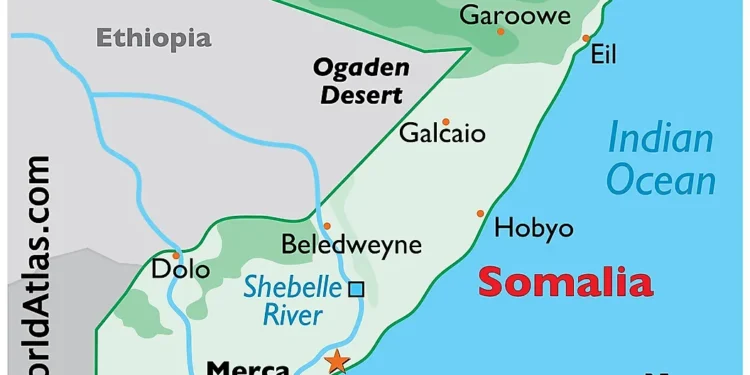(08-02-24) MOGADISHU (Halqabsi News) — Nageye Ali Khalif, a former Somali poet and academic, who vanished from Mogadishu 100 days ago, openly declared his allegiance to the extremist group Al-Shabaab in a detailed one-hour interview with Al-Furqaan, a media outlet closely affiliated with the militant organisation on Wednesday. This admission marks a significant and disconcerting shift for Khalif, who was once a respected figure within the academic and cultural spheres of Mogadishu.
During the interview, Khalif offered insights into his motivations and the ideological journey that led him to join Al-Shabaab, shedding light on the internal and external factors influencing his radical transformation. “The decision to join Al-Shabaab was not made lightly,” Khalif stated. “It was the culmination of a long period of contemplation and a deep conviction that the path I have chosen is one of resistance against injustices and foreign intervention in Somali affairs.”
Khalif articulated his disillusionment with the political and social state of Somalia, indicating that his efforts to find solutions within the existing framework were futile. “I sought to make a difference in Mogadishu, to contribute to my country’s future. However, the divisions and the influence of foreign interests on Somali soil drove me to conclude that true change can only be achieved outside the traditional avenues of power.”
Reflecting on the public reaction to his defection, Khalif expressed a sense of separation from his past life and the people he once lived among in Mogadishu. “The realisation that I had joined Al-Shabaab certainly distanced me from former colleagues and students,” he acknowledged. “But it is a sacrifice I am willing to make in pursuit of what I believe to be a greater cause.”
Khalif’s comments during the interview also touched on the symbolic significance of a plane flying overhead, which he interpreted as a manifestation of foreign interests overshadowing Somali autonomy. “Such sights reinforce my belief that external forces are dictating our fate, neglecting the true needs and aspirations of the Somali people,” he elaborated.
Experts have weighed in on Khalif’s interview, highlighting its implications for understanding radicalisation among the educated elite. Dr. Ismail Mohamed, a specialist in conflict resolution, remarked, “Khalif’s narrative is a poignant reminder of the complexities surrounding radicalisation. His journey from an academic to a member of Al-Shabaab challenges simplistic explanations and underscores the need for a nuanced approach to addressing extremism.”
Khalif’s transformation since leaving Mogadishu is not just ideological but also physical, with noticeable changes in his appearance, including significantly longer hair. He spoke of his satisfaction with the life he has chosen, despite acknowledging its hardships. This stance has perplexed many who knew him as a dedicated educator and a man deeply integrated into the community in Mogadishu.
The interview has sparked a broader discourse on the allure of extremist ideologies and the factors driving individuals towards such paths. Khalif’s case, in particular, raises critical questions about identity, belonging, and the lengths to which people will go to pursue their convictions. As Somalia continues to navigate the challenges of terrorism and radicalisation, Khalif’s candid disclosure offers a unique perspective on the personal and ideological battles shaping the conflict.












